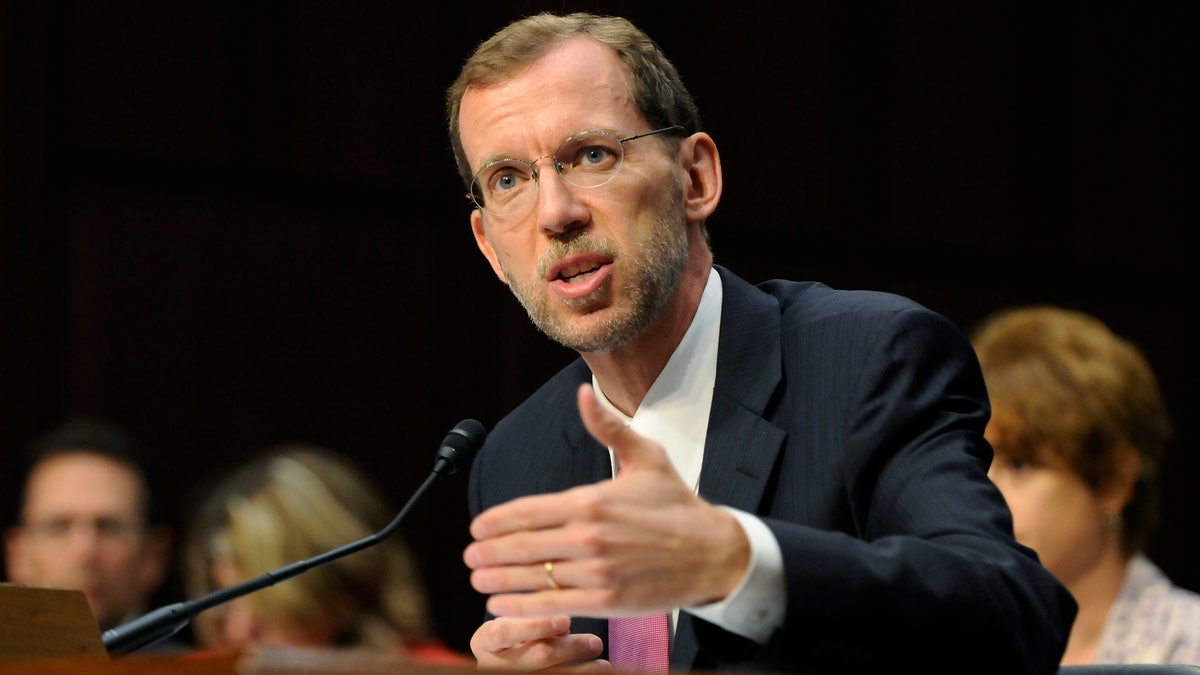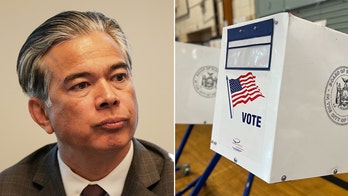
FILE: Congressional Budget Office Director Douglas Elmendorf delivers testimony before the first Joint Deficit Reduction Committee hearing on Capitol Hill in Washington. (REUTERS)
The head of the nonpartisan Congressional Budget Office delivered a damning assessment Wednesday of the Affordable Care Act, telling lawmakers that ObamaCare creates a "disincentive for people to work," adding fuel to Republican arguments that the law will hurt the economy.
The testimony from CBO Director Douglas Elmendorf comes after his office released a highly controversial report that detailed how millions of workers could cut back their hours or opt out of the job market entirely because of benefits under the health law.
The White House and its Democratic allies accused Republicans, and the media, of mischaracterizing the findings. But Elmendorf backed Republicans' central argument -- fewer people will work because of the law's subsidies.
"The act creates a disincentive for people to work," Elmendorf said, under questioning from House Budget Committee Chairman Paul Ryan, R-Wis.
[pullquote]
Ryan clarified that the CBO report found not that employers would lay people off, but that more individuals would choose not to work.
"As a result ... that [lower] labor supply lowers economic growth," Ryan said.
Elmendorf answered: "Yes, that's right."
Ryan fumed that this would mean fewer people would be "joining the middle class."
"It's adding insult to injury," he said. "As the welfare state expands, the incentive to work declines -- meaning grow the government, you shrink the economy."
Elmendorf, who was addressing the House Budget Committee, did say that the subsidies provided under the Affordable Care Act would make lower-income people "better off."
And Rep. Chris Van Hollen, D-Md., top Democrat on the committee, argued that the CBO findings were still being misinterpreted. He pointed to more positive findings in the report, including that health care premiums would go down.
The CBO report on Tuesday effectively found that more people would opt to keep their income low to stay eligible for federal health care subsidies or Medicaid. The workforce changes would mean nationwide losses equal to 2.3 million full-time jobs by 2021, the report said.
Republican lawmakers seized on the report as major new evidence of what they consider the failures of Obama's overhaul, the huge change in U.S. health coverage that they're trying to overturn and planning to use as a main argument against Democrats in November's midterm elections.
It's the latest indication that "the president's health care law is destroying full-time jobs," said Republican Rep. John Kline of Minnesota, chairman of the House Education and the Workforce Committee. "This fatally flawed health care scheme is wreaking havoc on working families nationwide," he said.
But the White House said the possible reduction would be due to voluntary steps by workers rather than businesses cutting jobs -- people having the freedom to retire early or spend more time as stay-at-home parents because they no longer had to depend only on their employers for health insurance.
The law means people "will be empowered to make choices about their own lives and livelihoods," said White House Press Secretary Jay Carney on Tuesday.
It wasn't all bad news for the Obama administration. The CBO's wide-ranging report predicted that the federal budget deficit will fall to $514 billion this year, down from last year's $680 billion and the lowest by far since Obama took office five years ago.
The new estimates also say that the health care law will, in the short run, benefit the economy by boosting demand for goods and services because the lower-income people it helps will have more purchasing power. The report noted that the 2014 premiums that people pay for exchange coverage are coming in about 15 percent lower than projected, and the health care law, on balance, still is expected to reduce the federal deficit.
However, the budget experts see the long-term federal deficit picture worsening by about $100 billion a year through the end of the decade because of slower growth in the economy than they had previously predicted.
The Associated Press contributed to this report.




